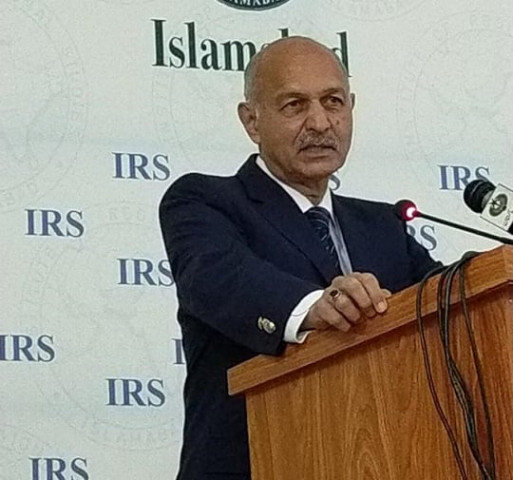Joint cyber inter-services command needed to counter undeclared hybrid war: Mushahid
Disinformation and destabilisation part of Indian policy against Pakistan, says Senator

Chairman of Senate Foreign Affairs Committee, Senator Mushahid Hussain Sayed has said that India has a clear policy against Pakistan, in which disinformation and destabilisation are key components and the country needs to establish a joint cyber inter-services command to counter New Delhi's hybrid tactics.
Addressing a seminar titled 'Disinformation as a Tool of Strategic Warfare' organised by the Institute of Regional Studies in Islamabad, Sayed stressed the need for clarity regarding the said policy to respond effectively.
An interesting Seminar on Indian State-sponsored disinformation which EU Disinfo Lab termed as ‘the largest network we have exposed’; Chomsky’s book, ‘Manufacturing Consent’ talks of nexus of media owners, advertisers & media elites all working in concert to create/demonise Enemy https://t.co/v1Pu7nsGAI
— Mushahid Hussain (@Mushahid) February 22, 2021
In the moot, the senator chaired the panel on 'India’s Disinformation Campaign against Pakistan and its Impact'.
He referred to American scholar Dr Noam Chomsky’s landmark study on propaganda, 'Manufacturing Consent', where he talks of a nexus between the media ownership, advertisers, and media elites, acting in concert to demonise the 'enemy'.
Also read: Pakistan must use new strategic space: Sayed
Sayed said that the Indian approach to disinformation is an example of this model, referring also to the tapes of Indian journalist Arnab Goswami and distortions by Indian media of the senator’s own statement on the Pulwama incident.
He observed that it was a myth that propaganda was a prerogative of only the dictatorships, in fact, democracies like India, Israel and US too engaged in disinformation.
The expert said that India’s propaganda against Pakistan is unique for three reasons. First, it is the only example of a neighbour to wage such systematic information warfare against a neighbour in peacetime, belying claims it wants good neighbourly ties. Second, it predates Modi, as this campaign started in 2005.
Third, it was thelargest network ever exposed’ of falsehood, lies and disinformation, spread over 750 fake sites, over 10 UN-accredited NGOs, a number of think-tanks, using an Indian news agency, ANI, to disseminate disinformation.
The scale and sustained nature of such disinformation is staggering and unprecedented, he remarked. And the purpose of this multi-million dollar effort was one: 'to discredit Pakistan internationally', as the EU DisinfoLab rightly put it.
Also read: Why Pakistan offers an ‘olive branch’ to India
The senator also quoted a recent tweet of Indian defence analyst, Pravin Sawhney, who linked India military’s withdrawal from the Line of Actual Control with China to Indian government’s desire ‘to go back to its chosen enemy - Pakistan’, as ‘China was distracting the extremists from their core mission’.
Given this context, Mushahid proposed the immediate establishment of a Joint Cyber Inter-Services Command to play a pivotal role in the emerging threat of an undeclared hybrid war by India against Pakistan.
He said, for Pakistan, ‘truth is the best weapon’ against India, adding that The Economist had a cover story on ‘Intolerant India’, while The New York Times carried Indian writer Arundhati Roy’s article in which she said ‘RSS is the state in today’s India’ and ‘an architecture of fascism is being erected in India’. These themes reflect the reality of Modi’s India.
Later, there was an animated discussion, including questions and comments. The senator thanked IRS President, Ambassador Nadeem Riyaz for reviving the institute as the preeminent Pakistani think-tank on India and South Asia.



















COMMENTS
Comments are moderated and generally will be posted if they are on-topic and not abusive.
For more information, please see our Comments FAQ